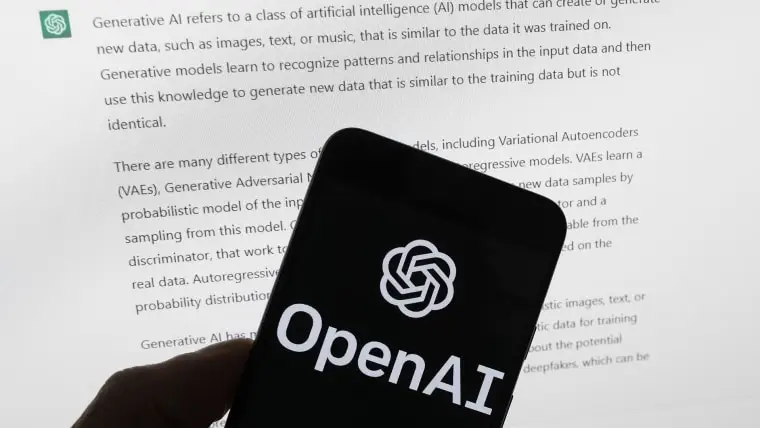
Washington is struggling to catch up on artificial intelligence
As industry experts and academics sound alarm bells, Washington has quickly turned its attention to artificial intelligence. But there’s hardly a coordinated approach when it comes to regulating the fast-moving technology.
President Joe Biden's administration has rolled out a number of executive actions to study the technology, while Senate Majority Leader Chuck Schumer, D-N.Y., is working with experts and stakeholders to develop a broad legislative framework for regulating AI. Without a clear game plan for tackling the issue, multiple committees on Capitol Hill are holding their own public hearings and private meetings to try to address AI capabilities that fall within their jurisdictions.
“The reality is the development of AI is at warp speed and none of us can keep up with it,” Sen. Peter Welch, D-Vt., a member of the Commerce, Science and Transportation Committee, said in an interview.
“I do think it’s important for us, together, to talk about what the values are that we hope to enhance and preserve and protect with AI,” he said, “but we’re a long way from having a coordinated approach.”
This week, OpenAI CEO Sam Altman, one of the nation’s leading voices on artificial intelligence, will address members of Congress as they try to get up to speed. Altman will speak to House Republicans and Democrats during a dinner discussion hosted by GOP Conference Vice Chair Mike Johnson, of Louisiana, and Democratic Caucus Vice Chair Ted Lieu, of California, on Monday night. Then on Tuesday, Altman will testify about AI for the first time on Capitol Hill, appearing before a Judiciary subcommittee on privacy and technology led by Sens. Richard Blumenthal, D-Conn., and Josh Hawley, R-Mo.
Many tech leaders have called for some sort of regulation or guidelines for the AI industry, though few have offered detailed policy proposals. In March, thousands of tech leaders and academics signed an open letter calling for companies to pause new experiments with giant AI models for at least six months, with some apocalyptic warnings, though there’s no indication that any of the major companies in the field plan to do so.
Rather than proposing sweeping AI legislation that could take years to enact, the Biden administration is using its existing authority to try to shape AI technologies and ensure they are developed and used responsibly.
This month, on the same day Vice President Kamala Harris huddled with Altman and other AI leaders, the White House announced a series of executive actions, including a $140 million investment to launch seven new AI research facilities and new AI guidelines for federal agencies.
Last fall, the White House Office of Science and Technology Policy rolled out an “AI Bill of Rights” — a road map for tech companies and other entities as they make and deploy powerful and potentially dangerous AI tools. The blueprint is nonbinding, but administration officials argue that the onus is on businesses — and the broader AI industry itself — to ensure that their products are safe and secure.
Several agencies, including the Justice Department and Equal Employment Opportunity Commission, have said they’re watching for automated systems that might discriminate illegally, like algorithms that might deny a person housing based on their race. The Federal Trade Commission has threatened to investigate companies that overhype their use of AI for potential false advertising.

Even some lawmakers aggressively pushing for new AI legislation see the advantage of Biden taking executive action to try to influence the rapid development of AI tools, from OpenAI’s enormously popular chatbot ChatGPT to AI image generators and voice cloning software that are fooling everyday Americans.
“The tremendous advantage of using existing agencies and regulatory framework is that a new legislative initiative on AI would be immensely difficult — from an intellectual and legal standpoint but also a political perspective,” Blumenthal said. “Just think of how long and hard we’ve worked on privacy, which is complex and difficult but may be child’s play compared to AI regulation.”
'It's just too new, too hard'
Former Google CEO Eric Schmidt argued on NBC's "Meet the Press" on Sunday that the AI industry needs to come up with regulations before the government tries to step in "because there's no way a nonindustry person can understand what is possible."
"It's just too new, too hard, there's not the expertise," Schimdt said. "There's no one in the government who can get it right. But the industry can roughly get it right and then the government can put a regulatory structure around it."
Jen Easterly, director of the Cybersecurity and Infrastructure Security Agency, said last week at a “Hack the Capitol” cybersecurity conference that there may be a regulatory solution to AI security concerns. But she added: “Businesses should be organized at the top level to put a priority on safety and security.”
"That doesn’t mean you can’t have innovation — you can have innovation — you just can’t think about it as innovation is incompatible with security and safety," she continued.
Steve DelBianco, a tech industry lobbyist who opposes government regulation on AI, said that federal regulators and lawmakers have been forced to play catch-up to Silicon Valley in the past, with technologies like social media.
“Washington doesn’t trust Silicon Valley to have thought through the consequences and disruptions of technologies that they’ve rolled out,” DelBianco said.
Regulators and lawmakers “are competing for the spotlight, to show that they’re taking the lead to protect constituents, protect consumers” when it comes to AI, he said.
Germinating ideas
While Washington’s approach to addressing AI may now seem disjointed, policymakers, regulators and White House officials are having lots of conversations about it. Senate Majority Whip Dick Durbin, D-Ill., who is the Judiciary Committee chairman, organized an AI briefing at the White House on May 3 with Arati Prabhakar, head of the Office of Science and Technology Policy, Durbin’s office confirmed. Roughly 20 senators, Democrats and Republicans, attended the meeting.
Blumenthal called AI the “new bright, shiny object” in Washington, and he said he doesn’t see a problem with a more organic, bottom-up approach to developing regulations in these early stages.
“I sort of see this phase as germinating ideas and coalescing around the ideas that make sense, but there doesn’t have to be a kind of, you know, top-down approach. I think, let 1,000 flowers bloom,” Blumenthal told NBC News.
Still, he argued that the executive branch will need to take the lead given that international cooperation will be required, similar to the Human Genome Project of the 1990s and early 2000s.
“Ultimately, presidential leadership is absolutely necessary here,” Blumenthal said. “There’s so many international implications. Congress can’t conduct negotiations with the Chinese on whether they’re going to follow standards or rules that we adopt.”
Other lawmakers say they are looking at tackling the AI challenge in smaller bites. The Senate Armed Services subcommittee on emerging threats held a closed-door briefing last week where AI issues were discussed, said Sen. Tim Kaine, D-Va. And he said there will be a lot of focus on AI issues in this year’s National Defense Authorization Act, the massive defense policy bill Congress must pass each year.
"I think the pace of discussions on AI on many committees is picking up right now," Kaine said.
Rep. Jay Obernolte, R-Calif., a video game developer who has a master’s degree in AI from UCLA, said he’s part of House-Senate talks to form a congressional AI working group that can hammer out issues ahead of time so they don’t slow down a legislative package.
“We’re in the very early stages of formulating what a regulatory framework might look like. And I think that as the effort gets a little more mature, you’re going to see more coordination,” Obernolte said.
“The goal,” he said, “will be to have a bipartisan, bicameral working group so we can put together something that doesn’t have to go through the torturous process of being modified and completely changed as it moves from committee to House, and House to Senate.”
Sen. Ben Ray Luján, D-N.M., a Biden ally who serves on the Commerce panel, said he is committed to passing AI legislation on issues he cares about, particularly around national security and film and music copyright infringement. He predicted that Biden would back AI legislation if Congress sends it to his desk.







